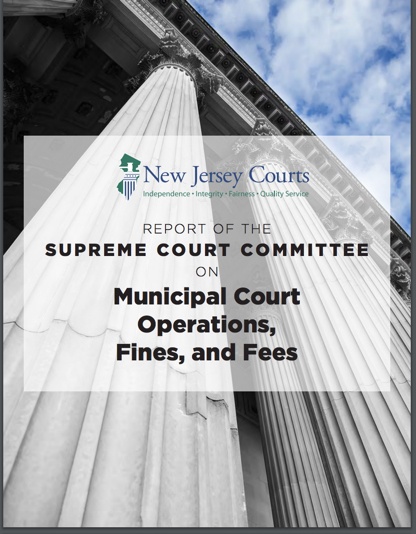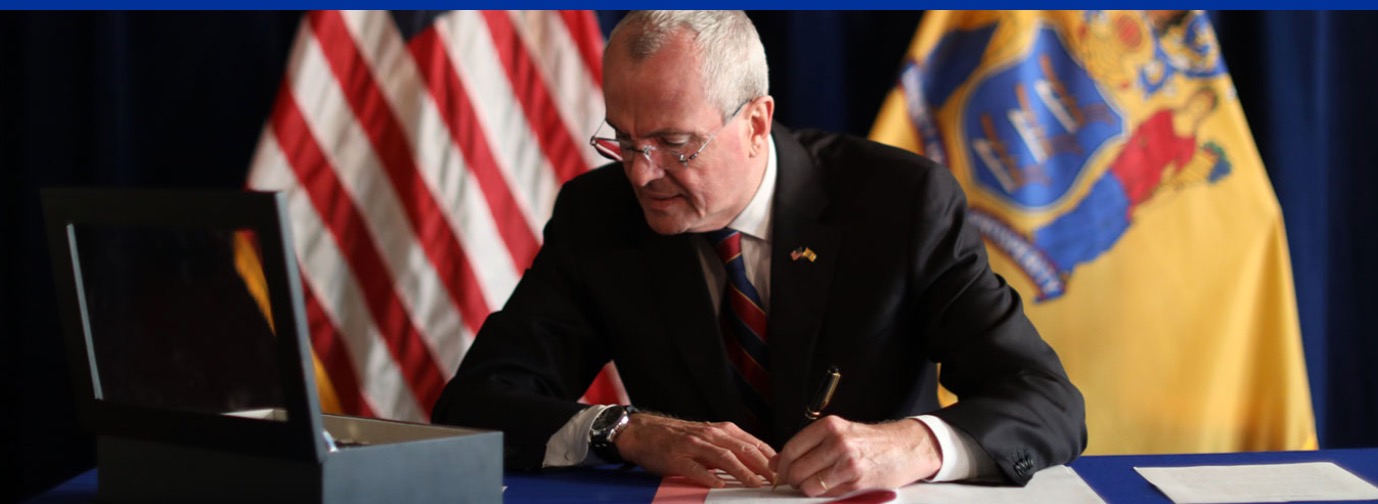New Jersey, a small but densely populated State, has 21 counties and 565 municipalities. Right now there are 515 Municipal Courts – 316 have individual, stand-alone courts, 173 municipalities share services, while the remaining 76 municipalities have agreed to form 24 separate joint Municipal Courts. Each have their own judges, prosecutors, public defenders, court administrators and staff. Municipal courts handle approximately 6 million cases a year — motor vehicle summonses, violations of municipal ordinances and minor criminal matters.
For most citizens, it is their only exposure to the courts and judges of this State. As Chief Justice Stuart Rabner said, “Most interactions between the public and the Judiciary take place in the municipal court system. Millions of people who come into contact with the municipal courts each year form their impressions of the justice system based primarily on those interactions.”
NJ Supreme Court Chief Justice Stuart Rabner charged a special committee to examine complaints about New Jersey’s municipal courts. The committee’s report released on July 17, 2018 issued recommendations to improve the overall operations of municipal courts and to make sure that the process is transparent and fair to the public.
One area of great concern is that municipal courts are great sources of revenue for the towns, imposing fines and fees from tickets to support their local budgets. When towns rely on fines and fees, it calls into question the overall fairness of the system. The 28-member committee, comprised of judges, court staff and attorneys who regularly practice in municipal court, made 49 specific recommendations addressing a number of concerns. The committee identified three “significant areas of concern” about municipal court operations:
- Excessive imposition of financial obligations on certain defendants
- Excessive use of bench warrants and license suspensions as collection methods, and
- Excessive use of discretionary contempt assessments
The committee discovered that many courts imposed jail sentences on people that could not pay their fines and costs for parking and traffic tickets, and that others did not properly allow for reasonable payment plans. Currently there are 2.5 million outstanding municipal court bench warrants for failure to appear and failure to pay. These warrants often involve minor offenses and minimal amounts owed. The cost and collateral consequences in the enforcement of these warrants can be devastating to individuals and families. In addition, many driver license suspensions result from the failure of motorists to pay their court-imposed fines and penalties, rather than excessive points for bad driving.
For disorderly persons offenses, petty disorderly persons offenses, and local ordinances (including most parking offenses), all fines go to the municipality. For traffic offenses, one-half of the fine money goes to the municipality, with the other half going to the county. For local ordinance violations, municipalities may set their own fine amounts or ranges within the statutory maximum and collected fines go to the municipality. In 2017, more than $400 million was collected, with more than half of that total being turned over to municipalities.
The committee also recommended the establishment of uniform standards for the selection of municipal judges and recommended independence in the hiring process by establishing qualifications committees for selection.
Why is this important?
While many municipal court judges are hard-working, fair and independent jurists, the committee found that a system of political appointments by mayors and town councils can lead to judges that are mindful of the political party that appointed them and their importance in raising funds for the town.
Other potential abuses can occur when a municipal judge is more concerned about his or her reappointment than a fair and just result. Since municipal judges are appointed to 3-year terms, there is a concern that the public perception could be one that the judge sides with the officer over the citizen.
Such concern calls into question the independence of the judge in making factual determinations at hearings and trials since there are no juries in municipal court. The report noted that there is no uniform appointment or reappointment process or procedure utilized in the State of New Jersey, and, similarly, there is no uniform salary requirement, as most positions are part-time. Municipal judges are paid annual salaries set by ordinance or resolution of the establishing county or municipality.
Given that the average citizen is much more likely to appear in municipal court rather than State Superior Court, it is imperative that the process be open, transparent and fair. The recommendations of this committee, if carried out, will be a significant step forward in improving our municipal courts.
Robert Stahl, and his firm, Stahl Gasiorowski Criminal Defense Lawyers aggressively defend individuals charged with complex federal and state crimes. Founder Robert G. Stahl is recognized as one of the top criminal defense attorneys in the NY/NJ area for his skills, knowledge and success. To contact the firm, call 908.301.9001 for the NJ office and 212.755.3300 for the NYC office, or email Mr. Stahl at rgs@sgdefenselaw.com.




Leave A Comment